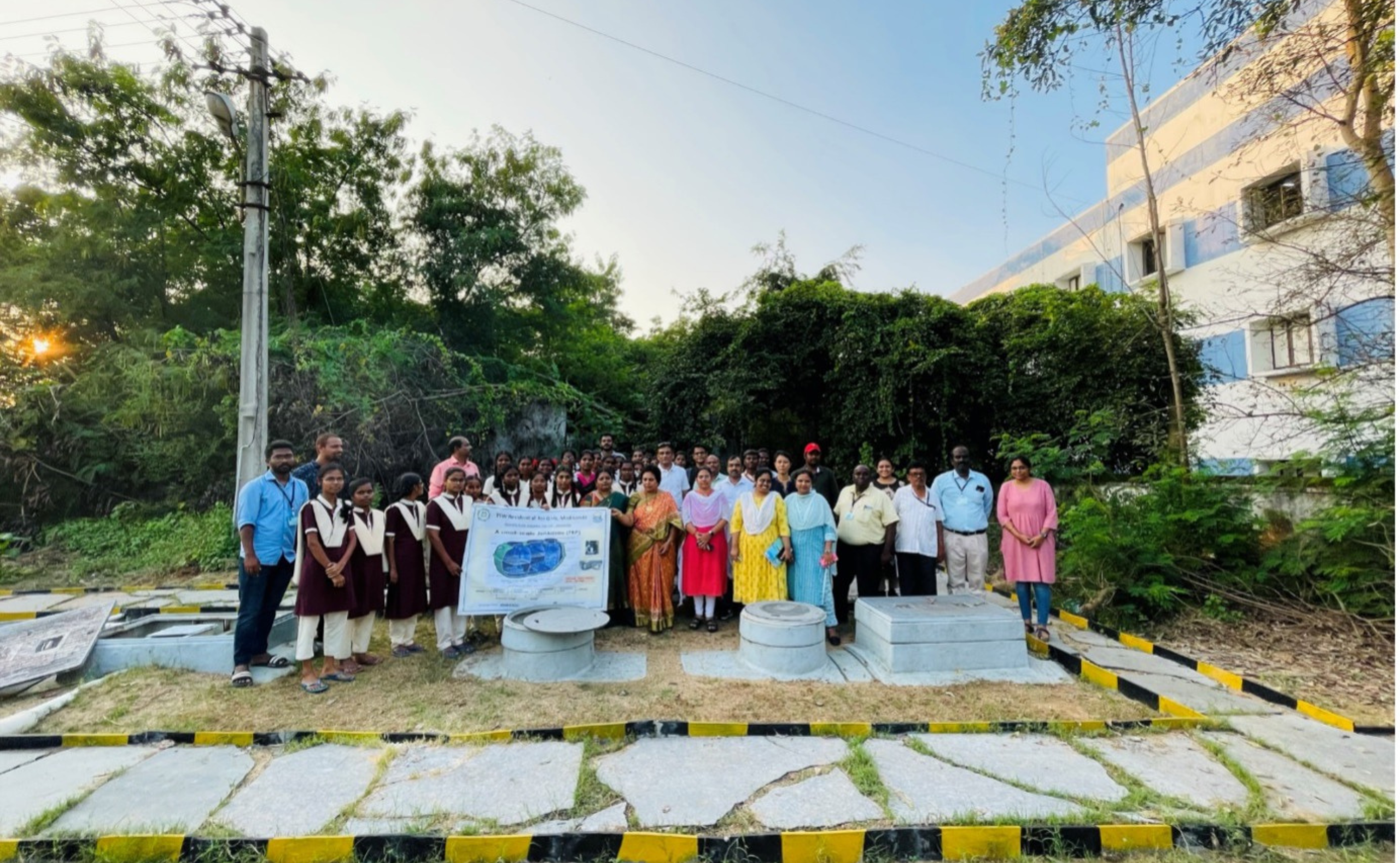
Safe sanitation for all is essential for improving public health, providing a clean environment, and breaking cycles of disease. Yet, rapidly urbanizing countries in South Asia are seeing increasing slums and sanitation challenges. A lack of proper sanitation has been a long-running development issue that remains stubbornly difficult to resolve. City-wide inclusive sanitation (CWIS) has emerged as a way to accelerate progress toward providing sanitation services while working toward achieving the Sustainable Development Goal (SDG)-6 targets and recognizing the urban sanitation crisis and its disproportionate burden on the urban poor.
CWIS looks to shift the urban sanitation paradigm and prioritizes equity, public and environmental health, and the co-existence of a range of solutions tailored to the requirements of cities. Meanwhile, fecal sludge and septage management (FSSM) includes the safe management of sanitation across the sanitation value chain, covering the safe containment, collection, transport, treatment, and reuse of waste. It focuses on service provision and its enabling environment, and not on building infrastructure alone (Schrecongost et al. 2020).
Many national, state, and city governments have started prioritizing FSSM and CWIS but are faced with a shortage of knowledgeable and skilled human resources to scientifically plan, implement, and monitor CWIS activities for bringing the environmental and health benefits to all. Administrative Staff College of India (ASCI), a leading think tank in the water, sanitation, and hygiene sector, partnered with the Asian Development Bank Institute (ADBI) with the objective of developing practicing CWIS champions and equipping urban practitioners with the knowledge and skills to contribute to practices and research on CWIS. They offered four batches of an 8-week online certificate course on Leadership Development for City-Wide Inclusive Sanitation.
The course aimed to equip and build a cadre of sanitation professionals who would be able to describe the principles of city-wide inclusive sanitation and pathways for implementation by evaluating the complexity of urban sanitation and its impact on health, the environment, people, and the economy. The participants examined the policy and regulatory frameworks for universal, pro-poor, and gender-inclusive sanitation in urban areas, with a focus on non-sewered/fecal sludge and septage management, as well as options for implementation. They were also taught to consider and formalize innovations and social enterprises to support CWIS implementation at scale and create practical action plans.
As Benjamin Franklin said, “Tell me and I forget. Teach me and I remember. Involve me and I learn.” In consideration of this, the course included 3-day sanitation tour to the Indian state of Telangana during 18–20 October 2022 with the aim of bringing about impactful changes in the mindsets of the practitioners and supplementing the theoretical lectures and discussions. The tour demonstrated and showcased innovative and practical CWIS interventions by the Government of Telangana, implemented through technical support from ASCI, with participants from the Indian states of Tamil Nadu, Bihar, Andhra Pradesh, Uttar Pradesh, Delhi, and Telangana and also from Nepal. During the visits, the participants were invited to meet communities, political representatives, and city and state officials, learn and experience ICT-based monitoring systems, and witness innovative technologies in the sanitation sector.
Day 1 began with a discussion on CWIS concepts and principles, environmental standards and protocols, business models, and the case study of Hyderabad showing the implementation of CWIS in a metropolitan city. Later, the participants went to a fecal sludge treatment plant (FSTP) at Uppal, an IOT operated and monitored FSTP with combined biological treatment and solar sludge drying technology.
Day 2 was a visit to Warangal, a city with major CWIS implementation and interventions. The participants viewed public sanitation systems, public toilets, she toilets, loo-cafes, and decentralised wastewater treatment systems (Johkasou in a school and soil biotechnology at a hospital). They also visited the FSTPs at Warangal (pyrolysis and geo-bag technologies) and interacted with sanitation workers, women groups, resident welfare associations, environment sanitation department members, and academics. The Warangal case helped participants understand how a city can transform from poor sanitation to CWIS.
Day 3 began with a visit to the knowledge resource centre at the Commissioner and Director of Municipal Administration at Hyderabad, followed by interaction with the Director of Municipal Administration and state FSSM unit members. The participants discussed the state’s vision for achieving safe sanitation and establishing ICT-based monitoring systems, and examined how Telangana has been diffusing the CWIS concept to all its urban local bodies. The participants were grouped together and asked to create action plans that they could implement in their respective cities. They presented their plans and discussed them among themselves and with the experts.
The online course and tour helped participants realize that applying the principles of CWIS for achieving urban sanitation goals is just not a theoretical approach but one that is achievable in reality. They appreciated the approach of universal, pro-poor, and gender-inclusive sanitation (engaging women and transgender self-help groups) along with real-time ICT tools for monitoring. Participants also came to understand the importance of institutional strengthening, accountability measures, human resource management, and capacity building efforts taken up for sustainable sanitation improvements. They were impressed by the political will and administrative capacities and public-private partnership models.
Based on the coordination experiences of ASCI and ADBI, sanitation tours can be a valuable learning tool, and courses should be coupled with such field-level demonstrations and interactions to bring about a believable change among current and future practitioners. As Thomas Fuller said: “Seeing is believing.”
Photo: Participants at the Johkasou wastewater treatment plant at a government residential school, along with the students and school staff.
Reference
Schrecongost, A., D. Pedi, W. Rosenboom, R. Shrestha, and R. Ban. 2020. Citywide Inclusive Sanitation: A Public Service Approach for Reaching the Urban Sanitation SDGs. Frontiers in Environmental Science 8.








Comments are closed.